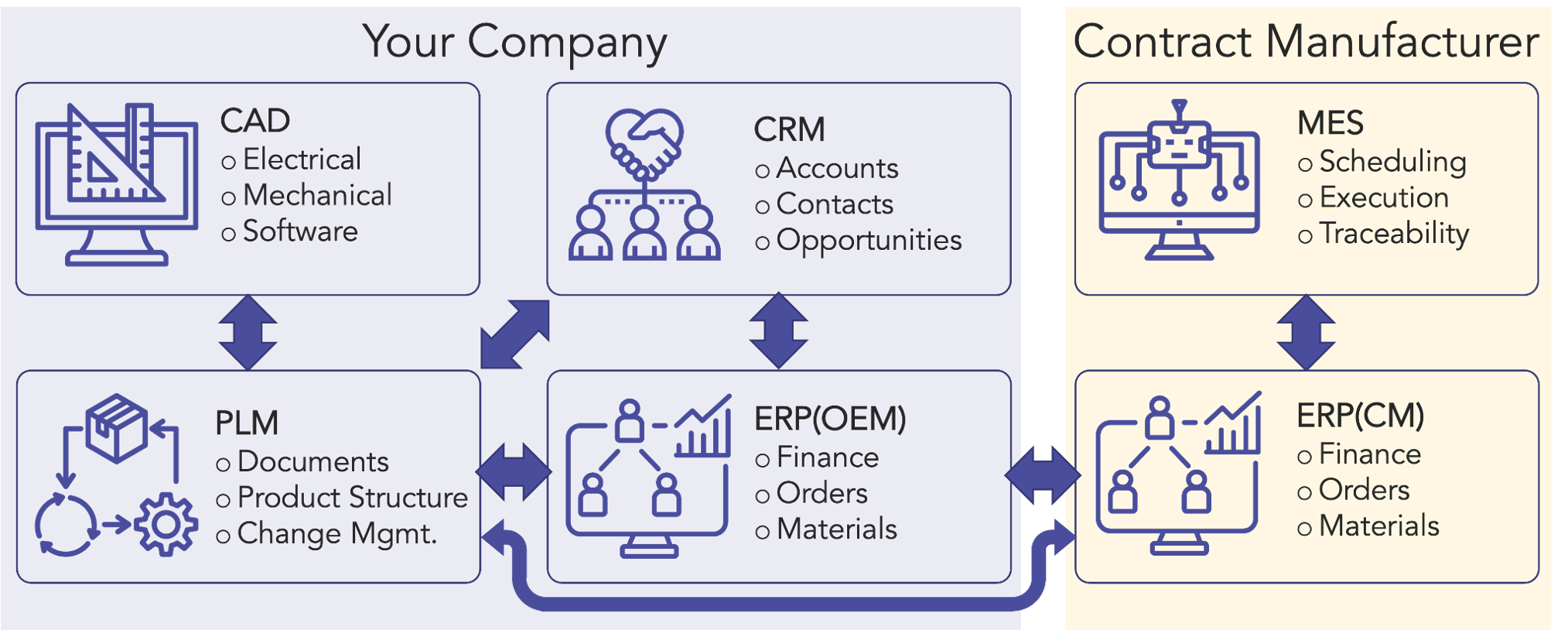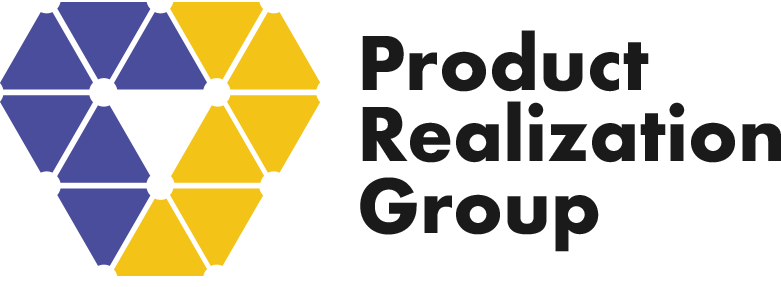
5. LEVERAGE SaaS / SOFTWARE APPLICATIONS & TOOLS
(automate and integrate)
As you scale your business, you will find that managing data in different silos (e.g. engineering, finance, operations, sales, etc.) will become more challenging to manage over time. Companies that do not have a strategic business systems plan in-place, may encounter the following challenges:
- Silos of isolated information (e.g. the same information is duplicated across functions)
- Ineffective change management process resulting in product defects and higher costs
- Inability to create accurate reports and accountability metrics
- Risk of data being lost because it is on individual systems – dependence on “tribal knowledge”
- Manual and error prone data entry
- Data that is not accessible or usable
- Poor communications across functional groups (e.g. engineering, manufacturing, procurement, etc.)
- Lack of data integration between systems
While these issues may seem daunting, they are common among startups and smaller companies that have invested in specialized software for design engineering, accounting, purchasing, etc. But, have not made the investment for larger software applications and business systems.

The benefits of having a strong systems deployment and integration plan include:
- Single source of “truth” for product data
- Effective Engineering Change Order (ECO) / management process
- Better reporting to support business management as well as regulatory compliance
- Reduced manual entry, associated errors and costs
- Support of ISO, FDA and related quality management processes
- Automated workflows
- Clearer communication across functional areas and geographies
- Supports a stronger innovation ecosystem/culture
Let’s take a closer look at some of these benefits.
Product Data
How do you manage product data?
While it may sound obvious, having a single source or go-to location for data greatly improves a company’s ability to manage data and eliminate errors associated with disparate or duplicate data sources. In this example, we are using “data” as a broad term to cover documents, drawings, spreadsheets, pricing, etc. created and used by engineering, manufacturing, procurement, etc.
ECO / Change Management Process
How rigorous is your company’s ECO Process?
Most people would say “yes, we have one” but the maturity and control of documentation does vary by firm. Companies with a relaxed ECO process run the risk of generating errors because design engineering, manufacturing, procurement, etc. are not well aligned. This gap can cost companies thousands of dollars in wasted time, energy, rework, etc.
Reduced Manual Data Entry
Let’s admit it, we have all made mistakes at one time or another entering data. Whether the error was due to an old keyboard, a momentary lapse of dyslexia or simple oversight reading a number, the result can be costly, depending on the typo and what the resulting impact might be. An integrated system, which pulls data from one source to another not only reduces time, but eliminates corresponding errors.
Support of ISO, FDA and Quality Management Systems
Do you work for a company that is ISO certified, supports FDA product development or has a solid Quality Management process? If the answer is “yes” you already understand the benefits of having a robust SaaS or suite of software applications. One of the most powerful benefits is the combination of document control, ECO management and a system to track the history of product development.
Automated Workflows
Software applications today are capable of automating workflow between functional groups (e.g. design engineering, manufacturing, procurement, etc.). Perhaps most important is the emphasis on “automation” where data is pulled from one database/source or pushed to another functional group. Depending on the system configuration settings, changes can be made in real-time, improving communication between groups and saving on hard costs and time.
Software Applications and Tools
Today, there are many software applications and software suites to support startups, SMBs and larger companies within multiple high-tech markets. The choice to pick one application over another depends on a number of factors, including company size, industry, budget, etc. Here at PRG, we have worked with companies that have integrated different business systems and have seen large improvements in productivity and business processes.

Mike Freier is Founder and Principal Consultant at the Product Management Consulting Group and has more than a decade in hardware product management/marketing.


